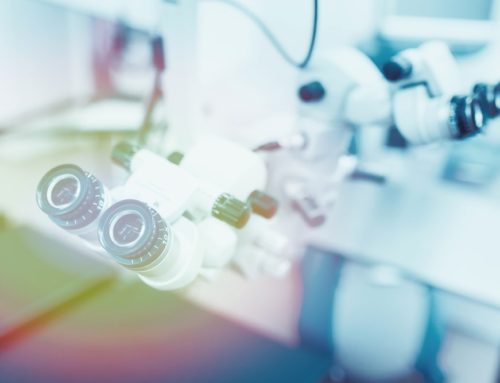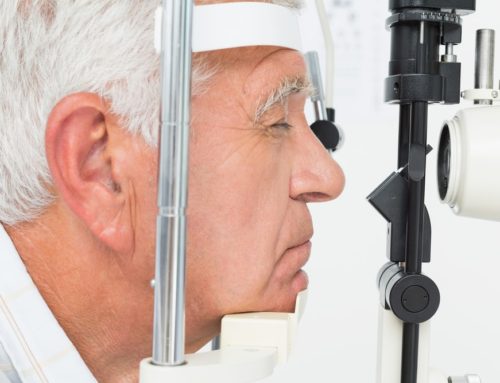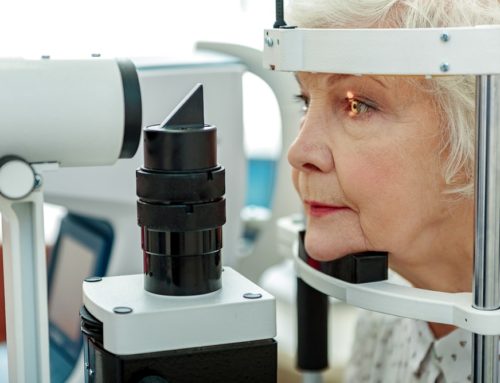What are the treatment options for glaucoma?
Glaucoma treatment comes in a variety of forms. You will hear people talk about having glaucoma drops and drops are still one of the first line treatments. There are also laser treatments and in the last three years, there’s been a real new development in laser treatments for glaucoma and then surgery. However, not everyone has to have an operation just because they have glaucoma. We don’t want people to be put off and coming to see us because they think we are going to say: “You need an operation”. The vast majority of people can be managed with drops or laser treatments.
The glaucoma treatment options are aimed to reduce that pressure in the eye, even if it is within the normal range at the time it is diagnosed. In terms of drops, there are four or five different classes of drops that we can use so that we can find something that suits everybody. The eyedrops that you usually start using on your first line you just put in once a day at night. We completely recognise that putting people on drops lifelong is a big undertaking, because once we start you on the treatment you can’t stop it. What I’m particularly interested in is finding drops that work the best with your lifestyle that don’t cause any red eye or irritation or at least minimise the side effects of glaucoma treatment. As I said, you don’t know that you’ve got glaucoma, but you will sure know if the drops are you feel worse and we don’t want that to be a barrier to be able to use them every day.
The second glaucoma treatment option is laser treatment. There are different ways of using laser to control glaucoma. If you imagine the eye bulb is a closed system, the pressure depends on the amount of fluid the eye is producing compared to how much is draining away inside the eye. There are laser treatments that work on turning down the influx and those are particularly important when we come to doing cataract surgery. I’m an experienced cataract surgeon as well and what I really like to do in patients who have glaucoma and cataract is offer them something else at the time of cataract surgery that will reduce the pressure and reduce their need for drops. This we can do that with laser treatment inside the eye called endo cyclo photocoagulation (ECP). We are one of the UK’s leaders on this. So, I have a vast experience in doing ECP for patients who have cataract and glaucoma.
The other way is to increase the eye float. There’s an eye patient treatment where you don’t have to come to theatre for and it’s called laser trabeculoplasty. There’ve been variety forms of this over the years, but the latest one has been available for about 5 years and it’s called SLT (Selective Laser Trabeculoplasty). If this works for you, it may mean that you don’t have to take drops at all for a period of 3-5 years, because if a patient who responds well to the laser, it is as good as using 1 drop. For a lot of people that may be all that they need. SLT also leaves no marks inside the eye. Nobody would ever know that you’d had this laser treatment unless they had read the medical notes. It really is kind to the eye, it doesn’t damage the eye at all and it’s certainly something that I would discuss with you quite early on when we’re deciding whether we should have the drop route or whether we should begin with the SLT route.
Lastly the surgery as a glaucoma treatment option: We recognise that most people would prefer not to have an operation. But when it comes to surgery, there’s a variety of options. Cataract surgery in itself is a very good treatment for pressure, so it will drop the pressure in the eye by 2 or 3 millimetres of mercury and that may be all that you need. There are bigger operations and because I work at Imperial and we are a big referral unit, we take cases from all over the country that need very complex surgery. So, there are bigger operations that can be done if you ran out of other options and I’m very happy to discuss that to make sure the patient knows exactly what it is that we are proposing and what is best for them and their families under individual circumstances.
More about Laura Crawley
Ms Laura Crawley is a Consultant Ophthalmologist at Clinica London, Imperial College Western Eye Hospital, and The London Clinic. Her special expertise is in treating glaucoma patients as well as patients with glaucoma and cataracts. She has a lot of experience in treating glaucoma, and has published extensively in scientific journals and on medical education. She still does a lot of emergency operations at the emergency department at the Charing Cross and Western Eye Hospitals for the NHS. At Clinica London she is responsible for glaucoma patients and glaucoma patients with cataracts. She also sees patients with general eye problems.







Leave A Comment